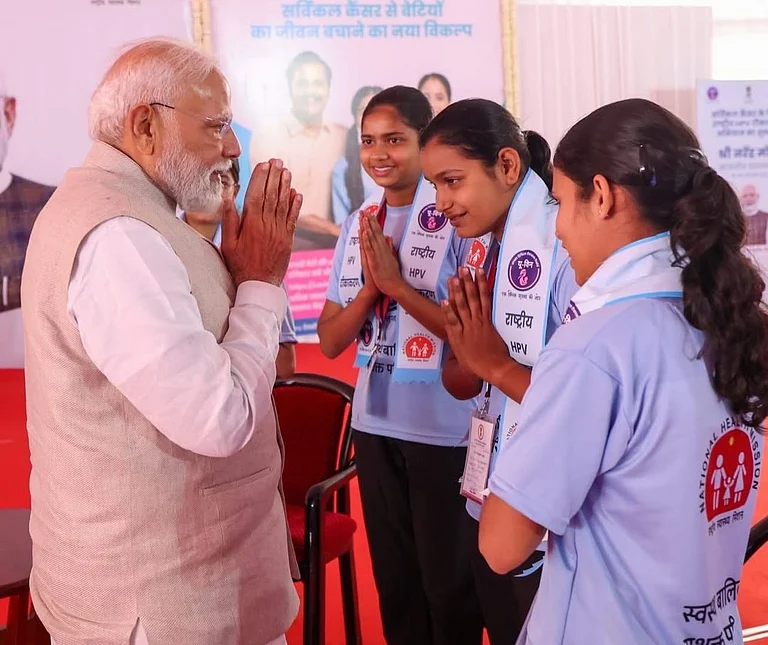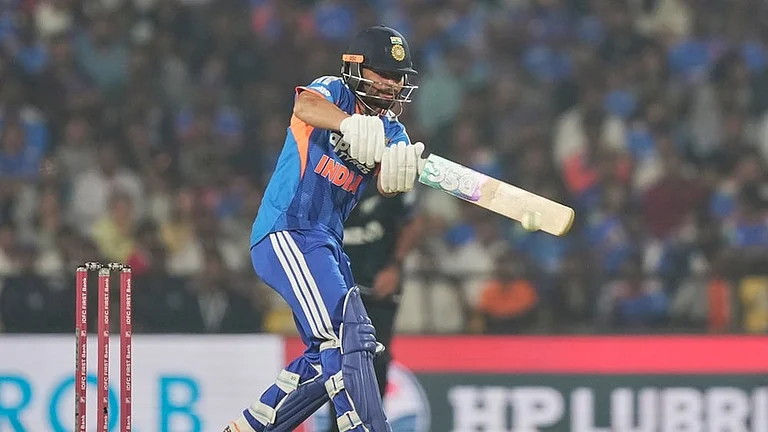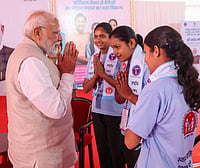As India plans adding the human papillomavirus (HPV) vaccine to the National Immunisation Schedule (NIS) to combat cervical cancer, a recent study by government doctors has highlighted the challenges the authorities may face in ensuring broader acceptance of the vaccine.
The researchers found low levels of awareness and significant cost-related barriers to HPV vaccination among adult women in South Delhi. The findings, they said, underline the need for greater public education and policy measures to improve accessibility and affordability of the vaccine, which is aimed at preventing cervical cancer and other HPV-related diseases.
The study published in The Journal of Medical Sciences (2025), assessed the knowledge, attitudes, and practices (KAP) regarding HPV vaccination among 400 women aged 18 years and above attending a tertiary care centre in the national capital between May and August 2024.
The researchers included Dr. Saloni Chadha and, Dr. Sumedha Gupta, both gynaecologists from VMMC & Safdarjung Hospital, Delhi, Dr. Dheer S Kalwaniya from Department of Surgery, VMMC & Safdarjung Hospital and Dr. Bhawuk Dhir from Department of Dermatology, Pushpawati Singhania Hospital and Research Institute, Delhi.
As per the study titled, ‘Understanding human papillomavirus vaccination practices among women in South Delhi: Insights from a tertiary care center’, only 42% of respondents had heard of the HPV vaccine, and a mere 14.6% were aware of its link to cervical cancer. Just 2% knew the recommended age for vaccination, while 5% were aware that the vaccine is available for both girls and boys.
Despite limited knowledge, many participants expressed willingness to be vaccinated if cost barriers were removed. While 62.5% said they would take the vaccine if it were offered free of charge, only 20.8% were ready to pay for it. Similarly, 72% of mothers said they would vaccinate their daughters if the vaccine was free, but this number fell to 25.5% if payment was required, said the authors.
They found that besides financial constraints, fear of side effects (38.5%), and social resistance (21%) were also key deterrents to vaccine uptake. Only 23% of respondents perceived themselves to be at risk of HPV infection.
Cervical cancer is the fourth most common cancer among women worldwide and a leading cause of cancer-related deaths in India, accounting for 8.7% of all cancer deaths among Indian women with an age-standardised mortality rate of 9.2 per 1,00,000 population.
According to experts, HPV infection — caused by a group of more than 100 viruses, 14 of which are high-risk types — is responsible for nearly all cases of cervical cancer. Most infections resolve naturally, but persistent infection with high-risk types such as HPV 16 and 18 can lead to malignancy.
Vaccination, combined with regular screening, can prevent up to 90% of HPV-related cervical cancers. Though the vaccine is not yet part of India’s NIS, Sikkim and Punjab have introduced it through school-based immunisation programmes, and it is available for private purchase across all States.
Globally, the HPV vaccine has been integrated into immunisation programmes in 117 countries, though coverage remains lower in low- and middle-income nations.
Based on the study assessment, the researchers have pitched for increasing vaccine literacy — particularly around safety, recommended age, and protection against both cervical and other HPV-related cancers. They also emphasised the need for counselling from healthcare providers to address misconceptions and promote trust in the vaccine.
Commenting on the study’s observation, Dr. Adhip Arora, medical oncologist at AIIMS, Delhi who was, though, not the part of the study said, “The data make it clear that cost and misconceptions limit HPV vaccine acceptance. Targeted counselling and government supported delivery are key if India intends to eliminate cervical cancer as a public health problem.”
Dr. Radheshyam Naik, Consultant Medical Oncologist, Hematologist and Bone Marrow Transplant Physician at Sammprada Hospital, Bengaluru, spoke about the overall scenario of cervical cancer in India, noting a gradual but positive shift in trends.
“Cervical cancer in India is increasingly becoming a disease confined to women from lower socio-economic backgrounds rather than the middle class,” he said.
Welcoming the Union Government’s Budget 2024 announcement to promote universal vaccination for girls aged 9–14 years against the HPV, Dr. Naik said, “Once implemented effectively, it will help bring India’s cervical cancer incidence on par with developed nations. The government must begin this programme without delay.”
Despite a decline in incidence rates in recent years, cervical cancer remains the second most common cancer among women in India, accounting for nearly 10% of all female cancers, according to health experts.























